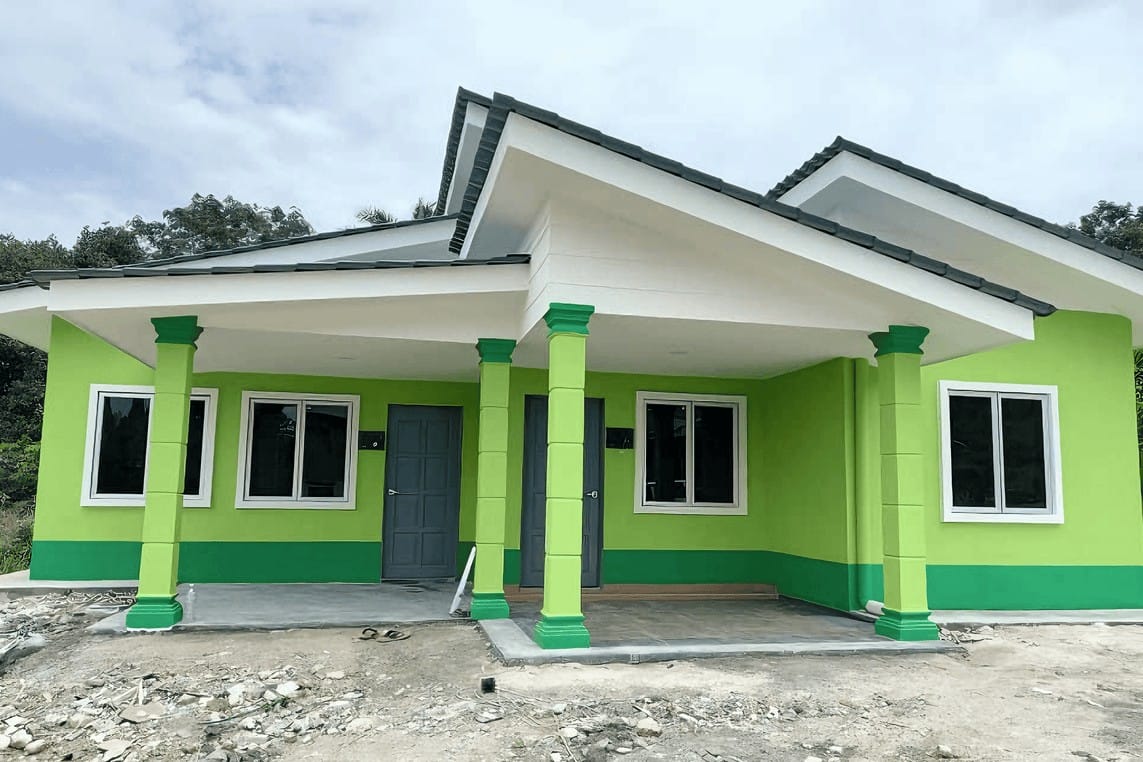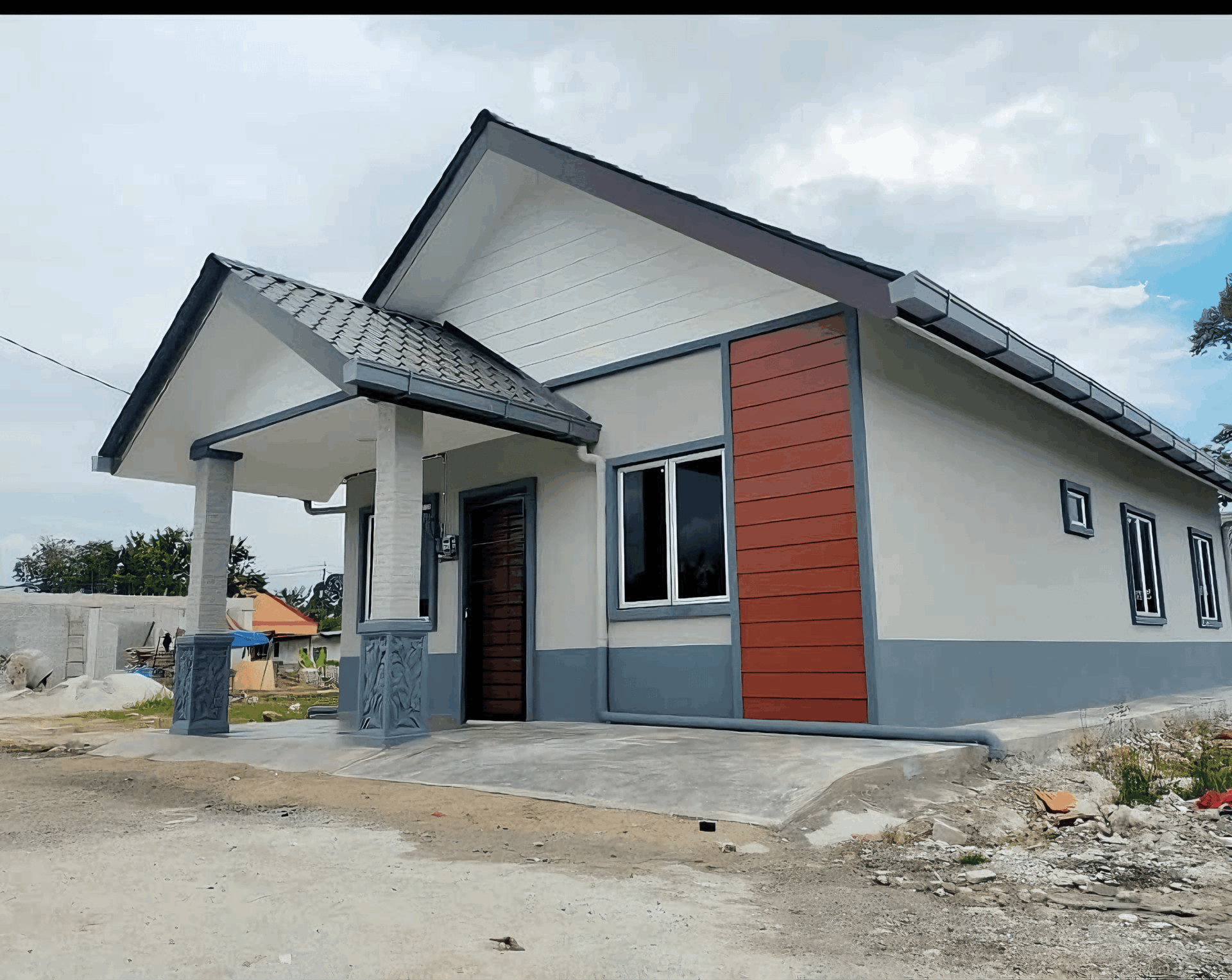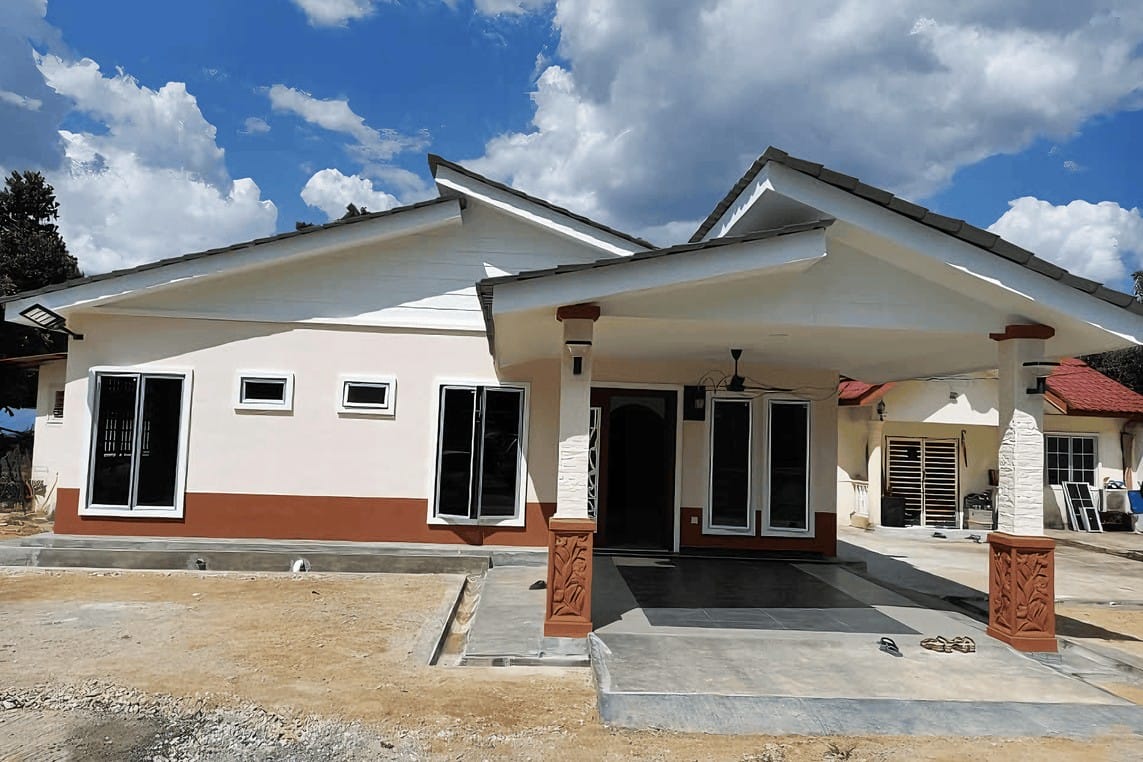Alright, let’s dive into a topic that hits close to home for many in Malaysia—our bustling construction industry! Picture this: tall skyscrapers climbing towards the sky, vibrant shopping malls springing to life, and homes being built to create warm spaces for families. But behind every impressive structure lies a race against time. Timely project completion isn’t just about ticking boxes; it’s that secret ingredient that can make or break a project’s success in our dynamic market. In this article, we’ll explore why hitting deadlines is crucial, looking at how it influences costs, reputation, and the overall health of the industry. So, grab a cup of kopi, and let’s unpack the importance of staying on schedule in Malaysia’s lively construction scene!
Understanding the Importance of Timeliness in Construction Projects
In the bustling construction landscape of Malaysia, finishing projects on time is more than just a goal—it’s a necessity. When deadlines are met, it creates a ripple effect that enhances the entire industry’s reputation. Delays can lead to increased costs, dissatisfaction among clients, and a tarnished image for contractors. Therefore, keeping a close eye on timelines enables stakeholders to anticipate potential hiccups, maintain budgetary constraints, and uphold commitments, which is crucial in a competitive market.
Moreover, timely project completion fosters strong relationships between various parties involved. When contractors deliver projects as scheduled, it builds trust with clients and promotes repeat business. Relevant industry players, such as subcontractors and suppliers, also benefit from this rhythm. A clear timeline allows everyone to align their operations, resulting in enhanced efficiency and reducing the bottlenecks that often plague construction projects. Here are some of the advantages:
- Enhanced Client Satisfaction: Clients appreciate punctuality, leading to positive referrals.
- Cost Efficiency: Adhering to timelines reduces additional costs incurred from delays.
- Increased Productivity: A well-structured schedule keeps the workforce motivated and focused.
To illustrate the potential impact of timely construction projects, let’s look at a simple comparison of completed vs. delayed projects:
| Project Status | Average Cost Overrun | Client Satisfaction Rate |
|---|---|---|
| On-Time Completion | 5% | 90% |
| Delayed Completion | 30% | 60% |
The data shows a clear correlation between timeliness and overall project success. When construction projects are finished as promised, the industry not only thrives; it paves the way for future developments, fostering an environment ripe for innovation and growth in Malaysia’s construction sector.

The Economic Impact of Delayed Project Completion
When a construction project runs behind schedule, the ripple effects can be significant, impacting not just the contractor but also the broader economy. Delayed projects can lead to increased costs, as workers and resources remain tied up longer than expected. This not only eats into profit margins but can also heighten tensions among stakeholders, leading to disputes and potential legal battles. The financial strain on contractors and their subcontractors can flow down the supply chain, affecting suppliers and even local economies.
Moreover, delays can erode public confidence in infrastructure development and government institutions. Citizens rely on timely project completion for essential services such as transportation, housing, and utilities. When projects lag, it can foster a sense of distrust among the public, which can, in turn, dampen investment opportunities in the region. A lack of faith in the completion of key projects can lead to hesitancy from both local and foreign investors, ultimately affecting economic growth and job creation.
The implications extend beyond just financial losses; they can also hinder Malaysia’s ability to meet its developmental goals. Delayed projects can stall strategic initiatives aimed at boosting the nation’s competitiveness on a global scale. Below is a table illustrating the potential economic costs associated with project delays:
| Type of Cost | Estimated Impact |
|---|---|
| Increased Labor Costs | Up to 20% added expenses |
| Material Price Hikes | 5-15% increase on average |
| Loss of Revenue | Potential 30% revenue decline |

Ensuring Quality and Safety through Timely Execution
In the bustling realm of Malaysia’s construction industry, ensuring that projects are completed on time is not just a matter of efficiency but a crucial factor in maintaining both quality and safety standards. When deadlines are met, there’s less urgency to cut corners or compromise on materials and methods. Timely execution allows for thorough inspections to be conducted, ensuring that every aspect of the project meets local regulations and safety codes. This proactive approach minimizes the risk of future structural issues, safeguarding both the investment and the integrity of the building.
Additionally, adhering to deadlines fosters a culture of accountability among stakeholders. When everyone, from project managers to subcontractors, understands the timelines and their responsibilities, it creates a symbiotic relationship that encourages collaboration and communication. Regular updates and scheduled check-ins become the norm rather than the exception, leading to a streamlined workflow. This not only results in fewer delays but also enhances the overall quality of the finished product, as stakeholders are more engaged and proactive in addressing potential issues throughout the construction process.
Moreover, punctuality in project completion can significantly impact the financial well-being of companies involved. Delays often lead to increased costs, contract disputes, and a tarnished reputation, which can have a ripple effect on future bids and projects. Here’s a simple breakdown of how timely execution contributes to financial success:
| Benefits of Timely Execution | Impact on Costs |
|---|---|
| Reduced Overheads | Lower labor and material costs |
| Less Rework | Minimized waste and material costs |
| Enhanced Reputation | More opportunities for future projects |
By prioritizing timely project completion, construction companies in Malaysia can unlock a pathway to success that not only meets client expectations but elevates industry standards for quality and safety.

Strategies for Effective Project Management in the Malaysian Context
In the fast-paced world of Malaysia’s construction industry, timely project completion isn’t just a goal; it’s a necessity. To ensure that projects are finished on schedule, effective planning is essential. This involves defining clear timelines and milestones, understanding resource allocation, and anticipating potential challenges. The goal is to create a well-structured roadmap that all team members can follow, therefore reducing the likelihood of delays.
Furthermore, communication and collaboration are the lifelines of successful project management. Incorporating regular check-ins and updates among team members not only helps in identifying issues early but also fosters a sense of teamwork. Using digital tools for project tracking and communication can streamline these efforts, ensuring that everyone is on the same page. It’s beneficial to create an environment where feedback is welcomed, allowing teams to adapt quickly to any changes that may arise during the construction process.
Lastly, embracing local knowledge can be a game changer. Engaging with local contractors and professionals who understand regional regulations and cultural nuances can help in mitigating risks. By leveraging these unique insights, project managers can navigate challenges more effectively. Additionally, regular training and development of the workforce should be prioritized to enhance skills and adapt to new technologies and methodologies, ensuring that the industry remains resilient and competitive.

Leveraging Technology to Enhance Timeliness in Construction
In the fast-paced world of construction, utilizing advanced technology can dramatically improve project timelines. Not only do modern tools streamline workflows, they also help identify and resolve potential issues before they snowball into costly delays. For instance, Building Information Modeling (BIM) allows teams to visualize the project in 3D. This capability facilitates better collaboration among architects, engineers, and contractors, ensuring everyone is on the same page from the get-go. When everyone clearly understands the project scope, it minimizes the chances of unexpected changes that can derail timelines.
Another technological marvel reshaping the construction landscape is the use of drones. These flying gadgets provide aerial surveys and real-time site monitoring, enabling teams to track progress and pinpoint bottlenecks early. By integrating drone technology into project management, construction firms can collect critical data that aids in decision-making, ensuring that projects stick to their schedule. Additionally, software solutions for project management and resource allocation can enhance efficiency by automating tasks and providing real-time updates on progress and inventory.
Lastly, embracing mobile applications is essential for on-site productivity. With construction teams often working in remote locations, mobile apps provide instant access to project plans, safety guidelines, and communication tools. This connectivity allows for quick adjustments and on-the-fly problem-solving, which are crucial for keeping projects on track. Consider this simple comparison table to show the benefits of traditional methods versus tech-driven solutions:
| Traditional Method | Tech-Driven Solution |
|---|---|
| Delayed communication | Instant updates via apps |
| Manual surveys | Drone surveys for efficiency |
| Flat 2D plans | 3D BIM for collaboration |
| Unplanned issues | Predictive analytics to foresee challenges |

Fostering Collaboration Among Stakeholders for Successful Outcomes
In the Malaysian construction landscape, success hinges on how well stakeholders work together. From developers and contractors to suppliers and local authorities, every party plays a vital role. When it comes to timely project completion, effective collaboration can streamline processes and cut down on delays. It’s all about building relationships that encourage open communication and mutual respect.
To achieve this, stakeholders need to embrace a culture of transparency. Regular meetings and progress updates can break down silos and help everyone stay informed. Utilizing modern technology, such as project management software, can also facilitate real-time updates and feedback loops. Commitments should be clear, and goals aligned on every level. It’s about finding common ground and working towards it together:
- Hold regular project briefings to keep everyone in the loop.
- Encourage joint problem-solving sessions to tackle any issues collaboratively.
- Utilize shared platforms for documenting progress and changes.
creating an environment where stakeholders feel valued and heard is essential for project success. Celebrating milestones and achievements, no matter how small, reinforces a sense of team spirit and motivates everyone involved. As projects progress, everyone should be recognized for their contributions, leading to increased accountability and commitment:
| Stakeholder | Role | Key Contribution |
|---|---|---|
| Developers | Project initiators | Vision and funding |
| Contractors | Execution | Skilled workforce and project management |
| Suppliers | Resource providers | Material supply and logistics |
| Local Authorities | Regulatory oversight | Permits and inspections |

Training and Development: Building a Timely Workforce
Developing a workforce that can meet tight deadlines is crucial for the success of construction projects in Malaysia. Timely project completion involves not just having skilled workers, but also ensuring they are effectively trained and equipped to handle the challenges of the construction field. Companies can invest in various training programs to foster a culture of punctuality and efficiency. Consider these options:
- On-the-Job Training: Hands-on experience prepares workers for real-world challenges.
- Safety Training: Ensures compliance and reduces accidents, keeping projects on track.
- Time Management Workshops: Helps workers prioritize tasks and manage their time effectively.
The key is to focus not just on technical skills but also on soft skills that foster collaboration and communication among team members. A well-rounded training program can bridge gaps in knowledge and improve overall project efficiency. To support this, companies might consider tracking workforce development through a simple metrics table:
| Training Program | Frequency | Participants |
|---|---|---|
| On-the-Job Training | Monthly | 15-20 |
| Safety Training | Quarterly | 30 |
| Time Management Workshops | Bi-Annually | 10-15 |
By continuously investing in training and development, companies not only enhance the skills of their employees but also promote a sense of responsibility towards meeting deadlines. When workers feel prepared and supported, they are more likely to take pride in their work and strive for timely completion, ultimately contributing to the success of Malaysia’s dynamic construction industry. This investment in human capital pays off handsomely, creating a workforce that is not only timely but also motivated and engaged.

Long-term Benefits of Commitment to Timely Project Delivery
Consistently meeting project deadlines cultivates a reputation for reliability within the construction industry. When companies demonstrate their ability to deliver on time, they build trust with clients, subcontractors, and suppliers. This trust often transforms into long-term relationships, paving the way for future projects. In Malaysia, where competition is fierce, a solid reputation can set a business apart and lead to new opportunities. Clients are more likely to return for additional projects or recommend services to others when they experience timely and quality deliverables.
The financial benefits of timely project completion cannot be overlooked. Companies that stick to their schedules often enjoy reduced overhead costs, as they spend less on extended site operations and resource allocation. Efficiency in project delivery also leads to improved cash flow, allowing companies to invest in their workforce or new technologies that further enhance productivity. According to industry insights, companies that prioritize punctuality report a significant increase in profitability, directly correlating with their operational practices.
commitment to timely deliveries creates an environment of innovation and continuous improvement. By adhering to strict timelines, teams are motivated to adopt new methods, tools, and technologies that facilitate efficiency. This not only enhances project delivery but also contributes positively to the overall growth of the workforce. In Malaysia’s evolving construction landscape, embracing such a mindset is essential for sustaining competitive edge, as companies can position themselves as leaders in adopting best practices and improving client experiences.
Future Outlook
As we wrap up our dive into the importance of timely project completion in Malaysia’s construction scene, it’s clear that sticking to deadlines isn’t just a nice-to-have; it’s essential for success. In a country where construction plays such a crucial role in our economic growth and urban development, every tick of the clock counts.
From keeping costs in check to boosting client satisfaction and enhancing reputations, staying on schedule can open doors to new opportunities and foster trust between stakeholders. As we look to the future, Malaysia’s construction industry stands at a crossroads, where embracing efficiency and innovation will be key to overcoming challenges and seizing the abundant potential ahead.
So, let’s keep the momentum going. Whether you’re a contractor, an architect, or part of the workforce, remember that every project you complete on time is a step towards not just personal success, but also contributing to a thriving national landscape. Here’s to building a brighter future, one timely project at a time!







